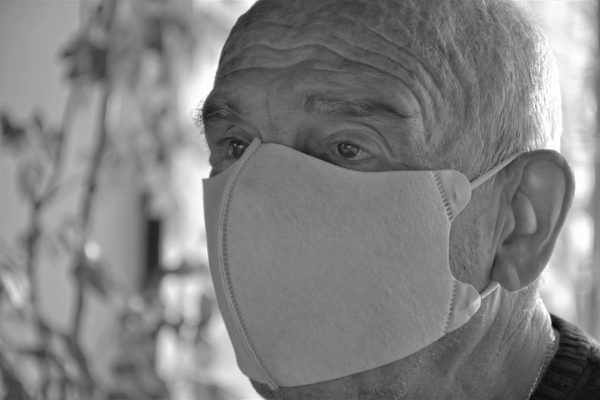
More Adults Are Getting Infected by RSV Now Than Pre Covid Time
During onset of winter world is recording a greater number of people getting infected with RSV -Respiratory Syncytial Virus. This contagious viral infection can be seen in young children and adults above 60 years of age. RSV is not a new virus. But it may be more of a health concern now than before. As per the data from CDC, after Covid pandemic, there is an increase in number of hospitalizations of adults due to RSV infection. During pre-covid these numbers were 10 times lesser at this time of the year.
A person can get RSV infection multiple times in a lifetime. It is generally a mild virus but when severe it can affect lungs and respiratory airways. Currently RSV cases are more in pediatric divisions. According to Thomas Russo, M.D., professor and chief of infectious disease at the University at Buffalo in New York “There’s a huge disease burden in the pediatric population right now and there will obviously be spillover, including in seniors interacting with grandchildren”. As it is contagious, RSV is getting into seniors’ system whenever they are exposed to the virus.
Symptoms of RSV:
Initial symptoms of RSV are like that of flu. These symptoms are hard to separate RSV from other common illness. Symptoms can range from mild to severe and can last up to 2 weeks.
RSV symptoms may include:
- Fever
- Cough
- Sore Throat
- Runny Nose
- Nasal congestion
- Wheezing
- Sneezing
- Headache
- Tiredness, fatigue
In older adults RSV symptoms can be severe. If the immunity is already compromised by already existing underlying conditions, then having RSV can impose and increase problem of recovery in older adults. Such patients may need hospitalization and proper care. Conditions that increase chances of hospitalization in older adults who are at age of ≥65 are;
- Diabetes – age 65 more likely to be hospitalized
- Coronary artery disease (CAD)
- Chronic obstructive pulmonary disease (COPD)
- Asthma
- Congestive heart failure (CHF)
If a person with any of the above conditions develops RSV, it can lead to serious complications such as COPD, heart failure, pneumonia, more asthma attacks. Amongst these symptoms pneumonia infection is the main concerns as lungs fill up with pus or fluid leading to serious illness and hospitalization.
Generally, a person with RSV will remain contagious for about 10 days. Whereas, with preexisting and compromised immune systems a person can be contagious up to a month.
Precautions and prevention measures:
- Practicing hygiene and being careful is important
- Wash hands after covering sneezing or cough
- Do not touch your face
- Avoid crowded indoor gathering
- Minimize social interaction
- Wear mask if you must be in gathering and while go on shopping
- Wear mask when you interact with young children
- Clean and disinfect surfaces with sanitizers
- Drink lots of fluid
- Take plenty of rest
- Stay home when you are sick
Treatment:
Unlike influenza or Covid-19, there is no specific treatment for RSV. There is no vaccine. There is no test kit or home test kit for RSV. Initially doctors may treat the person for multiple virus symptoms or painkillers and to reduce fever.
If a person needs hospitalization, then hospital give oxygen support for better breathing and IV fluids for energy.
When to see doctor?
- If you are experiencing flu like symptoms, contact doctor.
- If the symptoms start getting severe and if person is experiencing shortness of breath is a warning sign that the person need medical attention.
Remember – there are no medications or vaccines for RSV. Symptoms can be reduced by taking proper precautions. Afterall, we all are good at it as we are familiar with non-pharmaceutical interventions practices that we used during COVID pandemic time. Maintain social distancing, practice hygiene, wear mask, wash hands often with soap or use sanitizers!
References:
- https://www.aarp.org/
- www.cdc.gov
- https://abcnews.go.com/
- Image credit: Image by -Rita-👩🍳 und 📷 mit ❤ from Pixabay (CC by 0)
Author: HealthyLife | Posted on: November 17, 2022
« Scientists Track Behavior of Intestinal Bacteria Measles Is contagious And Making a Come Back In the World »






















Write a comment